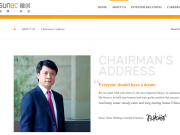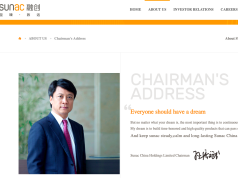Singapore MAS & McKinsey Explore Use of Transition Carbon Credits as a Financing Instrument to Speed Up Early Retirement of Coal-Fired Power Plants, Example of Retiring 1-Gigawatt Power Plant 5 Years Earlier to Receive $70 Million
30th September 2023 | Hong Kong
Singapore central bank Monetary Authority of Singapore (MAS) and McKinsey & Company have released a working paper to explore the use of transition carbon credits as a financing instrument to speed up early retirement of coal-fired power plants, with example of retiring 1-gigawatt power plant 5 years earlier to receive $70 million. Singapore MAS: “MAS and McKinsey have also proposed a template that provides detailed steps and sample tools for market participants to assess and execute such transactions. This includes a cashflow model to compute the economic gap that could potentially be covered by transition credits, and a list of standardised documents required to execute such a transaction. As next steps, MAS invites interested parties to join a coalition of partners to further validate this transaction approach, and identify suitable CFPPs to pilot integrating transition credits into the early retirement of CFPPs. This builds on the extensive engagements that were carried out to-date with industry practitioners across the carbon credit, energy financing, and project development space.” More info below:
“ Singapore MAS & McKinsey Explore Use of Transition Carbon Credits as a Financing Instrument to Speed Up Early Retirement of Coal-Fired Power Plants, Example of Retiring 1-Gigawatt Power Plant 5 Years Earlier to Receive $70 Million “
Leong Sing Chiong, Deputy Managing Director (Markets & Development), MAS: “To achieve a successful energy transition in Asia, we need to develop effective and scalable financing mechanisms to catalyse early phase-out of CFPPs. Today’s launch marks the beginning of a multi-year journey to pilot a broader market-driven approach to finance the early retirement of CFPPs at scale. This requires close collaboration among key stakeholders – asset owners, carbon credit buyers, financial institutions, MDBs, credit methodology developers and international standard setters, to road test the approach and develop rigorous solutions suitable for broad based market adoption. We look forward to working with like-minded partners to bring this to fruition.”
Oliver Tonby, Senior Partner, McKinsey & Company: “Addressing climate change is paramount. One-fourth of global emissions are from coal power, with three-fourths from Asia. Urgent collective action is required to retire Asia’s 1,500+ GW of young coal plants. Innovative financing mechanisms such as carbon credits could potentially enable such transactions at scale. We believe this paper provides a globally relevant and economically viable approach for coal decommissioning, aligned with Just Transition principles. A practical pilot can enact these principles, curbing emissions and expediting the shift away from coal, which is vital for the 1.5°C pathway.”
Singapore MAS & McKinsey Explore Use of Transition Carbon Credits as a Financing Instrument to Speed Up Early Retirement of Coal-Fired Power Plants
26th September 2023 – The Monetary Authority of Singapore (MAS) and McKinsey & Company today jointly published a working paper setting out how high-integrity carbon credits can be utilised as a complementary financing instrument to accelerate and scale the early retirement of coal-fired power plants (CFPPs). The paper explores the conditions for generating such carbon credits, and identifies what is needed to develop a high-quality market for such credits.
The managed phase-out of CFPPs is critical for Asia’s energy transition, and must take place alongside the development of clean energy sources. In the absence of mandatory managed phase-out requirements, stakeholders of CFPPs have little motivation to shorten their existing power purchase agreements [1] (PPAs). Notwithstanding existing efforts to finance the early retirement of CFPPs [2] , the large and young fleet of CFPPs [3] in Asia means that additional financing mechanisms are needed to improve the economic viability of such transactions and to crowd in significant private capital at scale.
To address this, the paper explores the use of high-integrity carbon credits to reduce the economic gap for early retirement of CFPPs. It considers the possible generation of “transition credits”, arising from the emissions reduced through retiring a CFPP early and replacing with cleaner energy sources.
The key elements of this approach are:
- Quantifying the economic gap – To retire a CFPP early, it is important to quantify the economic gap [4] as well as the financing needed [5] for the transaction to be viable. For example, the economic gap to retire a CFPP with a 1-gigawatt (GW) capacity five years earlier will be US$ 70 million per GW. The financing in this example is estimated at US$ 310 million per GW [6] .
- Leveraging transition credits – The revenues from the sale of transition credits could reduce the economic gap from retiring a CFPP early. These credits must be of high integrity which includes alignment to the Core Carbon Principles set out by the Integrity Council for the Voluntary Carbon Market. The paper does not attempt to develop a new carbon credit methodology [7] for the early phase-out of CFPPs. It makes clear that such a methodology should include commitments by the host jurisdiction not to build new CFPPs, and provide for the accurate measurement and monitoring of actual emissions reduced.
- Mitigating key transaction risks – The long-term horizon of such transactions creates risks and uncertainties, as transition credits will only be issued much later when the emissions reductions are verified. A combination of different undertakings could enable greater market adoption of this new form of credits. These include the relevant government’s agreement to enforce CFPP closures or insurance solutions to mitigate political risk that could lead to delays in the generation of carbon credits.
- Just Transition – It is crucial to assess and implement measures to mitigate potential harm to livelihoods and communities arising from the early retirement of CFPPs. This includes accounting for such costs in the financing of early CFPP retirement.
MAS and McKinsey have also proposed a template that provides detailed steps and sample tools for market participants to assess and execute such transactions. This includes a cashflow model to compute the economic gap that could potentially be covered by transition credits, and a list of standardised documents required to execute such a transaction.
As next steps, MAS invites interested parties to join a coalition of partners to further validate this transaction approach, and identify suitable CFPPs to pilot integrating transition credits into the early retirement of CFPPs. This builds on the extensive engagements that were carried out to-date with industry practitioners across the carbon credit, energy financing, and project development space.
Parties interested to be part of the coalition or have potential pilot projects are invited to write in to [email protected] .
Sign Up / Register
Caproasia Users
- Manage $20 million to $3 billion of assets
- Invest $3 million to $300 million
- Advise institutions, billionaires, UHNWs & HNWs
Caproasia Platforms | 11,000 Investors & Advisors
- Caproasia.com
- Caproasia Access
- Caproasia Events
- The Financial Centre | Find Services
- Membership
- Family Office Circle
- Professional Investor Circle
- Investor Relations Network
Monthly Roundtable & Networking
Family Office Programs
The 2025 Investment Day
- March - Hong Kong
- March - Singapore
- July - Hong Kong
- July - Singapore
- Sept- Hong Kong
- Sept - Singapore
- Oct- Hong Kong
- Nov - Singapore
- Visit: The Investment Day | Register: Click here
Caproasia Summits
- The Institutional Investor Summit
- The Investment / Alternatives Summit
- The Private Wealth Summit
- The Family Office Summit
- The CEO & Entrepreneur Summit
- The Capital Markets Summit
- The ESG / Sustainable Investment Summit










































